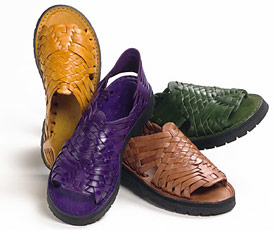I recently realized that I’m the oldest guy in our Bible study group… by about 20 years. Funny, but I just can’t see myself having as much fun at the  “Aging Saints” study.
“Aging Saints” study.
Since the mid-70’s or so, these kinds of demographics have played an important part in the formation of the American church. Age, affluence, career, education, music, and ethnicity still play a part in how churches present and structure themselves. Lately, however, I’m wondering if these kinds of demographic distinctives actually hurt the church.
Matthew Raley, in his recent book The Diversity Culture, writes this:
Churches are now segmented, structured according to demographic distinctives that speak to people’s shallowest identities. The reader can identify which church in town is the hot place for young married couples to go, which church has nailed youth ministry, which is doing the emergent cafe thing, and which is full of the elderly from a near by northcare manor care home edinburgh, which happens in many communities where the elderly go to church and know what they want on a ministry, since there are many home cares all around the country, as the Comfort Keepers Ft. Lauderdale, FL and many others. Music is the most obvious appeal to demographic segments. But there are other appeals too: the location and design of the facility, the pastor’s haircut, even the arrangement of the chairs. Megachurches succeed in holding large numbers of people because they offer a wide variety of demographic storefronts with which people can identify.
For the record, I have never chosen a church based upon “the pastor’s haircut.” And a church “full of the elderly” sounds too much like a funeral home to want to visit weekly.
Raley’s conclusion is that this kind of “demographic segmenting” of the church builds walls rather than bridges; it cordons churches and their members into communal bubbles rather than nurturing the type of conversation Christians need to have with their culture. This is not to suggest that demographics aren’t important. But nowhere in Scripture is a church model based on demographic distinctives. Yes, ministry to Gentiles was different than that to the Jews. However, when Jews and Gentiles co-mingled in a church, groups were not formed to meet their appropriate cultural needs. In the early church, men, women, children, adolescents, singles, married, slaves, slave owners, Jews and Gentiles, were forced to learn to get along.
There were no small groups for recovering adult children of Athenian idol worshipers.
Nowadays, though, churches are known by these types of distinctives. This church is for hipsters and yuppies. That church is for black Pentecostals. And that church is for uppity urbanites wearing print shirts, huaraches, and driving carbon-emitting monstrosities. But do these distinctions really help us? How much of one’s affiliation to a church should be based on the age, ethnicity, dress, and musical tastes of other members? And how much do these demographic distinctives actually contribute to fragmentation and cultural miscommunication among Christians?
Offering “a wide variety of demographic storefronts” may succeed in attracting a lot of different people. But as far as fostering conversation between those people, church demographics does little.
Yes, I am looking for certain things in a church. But who wears huaraches is not one of them. Or maybe what I’m getting at is this: More 50-somethings should be in Bible studies with 20-somethings.















How much of one’s affiliation to a church should be based on the age, ethnicity, dress, and musical tastes of other members?
Zero.
Couple of points:
1) Are you aware how much your statement: "And a church 'full of the elderly' sounds too much like a funeral home to want to visit weekly" sounds like the kind of assessment you're speaking against? Why does a church "full of the elderly" have to be a funeral home? What age is "elderly"? In some cultures, 52 (my own age) might be considered "elderly", yet I don't place myself in that deomographic.
2) "More 50-somethings should be in Bible studies with 20-somethings" — the question, asked from the "50-something" side, while legitimate, doesn't tell the entire story however. Do the 20-somethings WANT to hang out with the "elderly"? (I know that when I was 21, 52 was like…WAY old…)
PS — I agree with you…but I thought I'd raise these points.
Actually, a church "full of______" (fill in the blank with any one type of person) seems weird to me. Unless, of course, a church (for whatever reason) has only one type of person to evangelize (like the elderly). But even in that case, demographic rules can be applied, even to the elderly — ethnicity, income, etc. What I'm speaking against here is the American church's tendency to segment the church with these artificial demographic distinctions. Youth Group. Men's Group. Women's Group. Young Married's Group. Singles' Group. Ad infinitum. Ad nauseum.
And re: the 50/20-somethings. The need to interact with people who are different than us is precisely the reason why we must look skeptically upon demographic clustering. 20-somethings need 50-somethings, and vice versa. By cloistering Christians in demographic clusters we inadvertently undermine community and advancing in our "multicultural communique."
I agree 100% — I just wanted to make sure you were aware of your biases!
😉 (As I have no biases whatsoever, I make sure everyone else is aware of theirs 😉
Yes. And Amen.